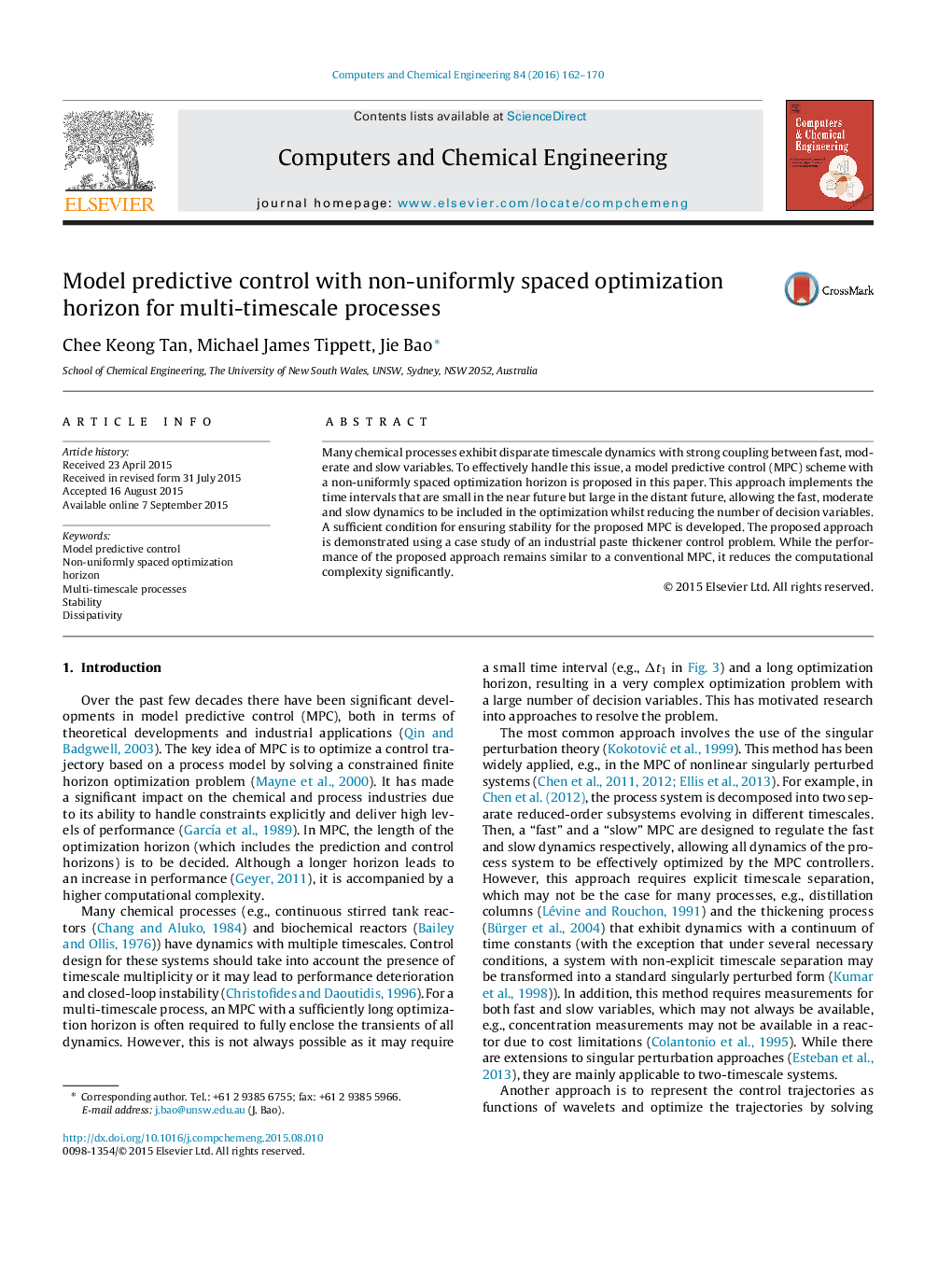| Article ID | Journal | Published Year | Pages | File Type |
|---|---|---|---|---|
| 172078 | Computers & Chemical Engineering | 2016 | 9 Pages |
•A novel MPC scheme with non-uniformly spaced optimization horizon is proposed.•The proposed approach can significantly reduce the computational complexity.•A stability condition is developed based on the dissipativity theory.
Many chemical processes exhibit disparate timescale dynamics with strong coupling between fast, moderate and slow variables. To effectively handle this issue, a model predictive control (MPC) scheme with a non-uniformly spaced optimization horizon is proposed in this paper. This approach implements the time intervals that are small in the near future but large in the distant future, allowing the fast, moderate and slow dynamics to be included in the optimization whilst reducing the number of decision variables. A sufficient condition for ensuring stability for the proposed MPC is developed. The proposed approach is demonstrated using a case study of an industrial paste thickener control problem. While the performance of the proposed approach remains similar to a conventional MPC, it reduces the computational complexity significantly.
